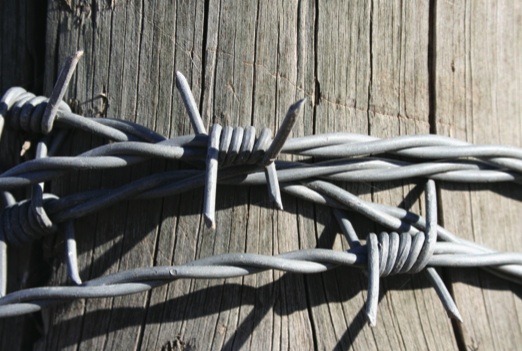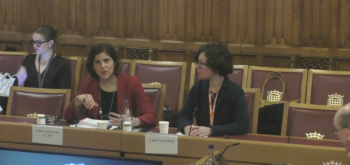LATEST IN THE JUSTICE GAP SERIES OUT NOW: ‘Our system of criminal justice is not perfect,’ writes Mr Justice Sweeney in his introduction to a new collection of essays about the investigation of miscarriages of justice. Next week marks the publication of Wrongly accused: who is responsible for investigating miscarriages of justice? It is the fourth in the JusticeGap series, published by the Solicitors Journal and edited by Jon Robins. The collection includes contributions from lawyers, journalists and campaigners.
‘Despite all its safeguards, a risk of miscarriages remains. Even in the current state of the public finances, we must continue to recognise and confront that risk. Miscarriages that have taken place, perhaps many years ago, must be identified and put right. The risk of miscarriages must be yet further minimised.’
Mr Justice Sweeney
- All titles are freely available as a digital download. The hard copy can be bought at www.solicitorsjournal.com/justicegap.
- All the contributors in Wrongly accused: who is responsible for investigating miscarriages of justice? are listed below.
This collection of essays was commissioned last year shortly after the 20th anniversary of the release of the Birmingham Six. On March 14, 1991 Paddy Hill, Hugh Callaghan, Richard McIlkenny, Gerry Hunter, Billy Power and Johnny Walker with Chris Mullin MP stood outside the Old Bailey free after 16 years having had their convictions overturned for the murder of 21 people in two pubs in Birmingham.
It was that scandalous miscarriage of justice that shook public confidence in the justice system. Their release led to the 1993 Runciman Commission and, then, to the creation of the CCRC which was set up as an independent body to investigate such cases 13 years ago.
Since the creation of the CCRC it seems fair to say concern over miscarriages of justice appears to have slipped from the radar of public consciousness. The topic has been consigned to some distant ‘Life on Mars’ past. The media, which did so much of the spadework exposing the notorious miscarriages through the 1970s and 1980s through for example the BBC’s Rough Justice, has long given up. The broadcaster pulled the plug on Rough Justice after 25 years in 2007, Michael Jackson, chief exec of Channel 4, dismissed Trial & Error, which also investigated miscarriages, and its subject matter as a ‘bit 1980s’.
Of course, the issue doesn’t go away.
This idea behind this publication was to explore the various issues to do with the investigation of miscarriages of justice. We invited contributions from leading thinkers in the criminal appeals field, not just lawyers but families, campaigners, journalists, and academics.
The commissioning brief that we sent out to prospective contributors asked them to explore ‘the responsibility not just on government but on all involved (lawyers, journalists, academics and campaigners…) to assist the victims of miscarriages of justice’. It said: ‘There is a recognition that the victims of alleged miscarriages need help beyond the role of CCRC and so the essays would address those reasons why the wrongfully accused are being failed by the criminal justice system and what role should the various groups play in promoting the interests of the wrongly accused.’
We will be highlighting essays over the course of next week – you can read Louise Shorter, formerly a producer on the BBC’s Rough Justice who set up Inside Justice, on the media’s fading interest in miscarriages HERE.
‘The BBC’s 2007 decision to quietly ditch its 27-year household-name strand, genuine public sector broadcasting, was in part financial: factual output at the Corporation was being slashed, a period which The Guardian described as ‘swingeing budget cuts’. But chief exec Michael Jackson’s description of his Channel 4 show Trial & Error as ‘a bit 1980s’ revealed far more about the reasons media execs fell out of love with miscarriage of justice stories, in a climate of reality razzmatazz and celebrity schmoozing.’
Louise Shorter
From Mr Justice Sweeney’s introduction
Our system of criminal justice is not perfect. Despite all its safeguards and the strivings of the vast majority of those of us who are involved in its conduct, a risk of miscarriages remains. Even in the current state of the public finances, we must continue to recognise and to confront that risk. Miscarriages that have taken place, perhaps many years ago, must be identified and put right; the risk of miscarriages in the future must be yet further minimised.
Since it began its work in 1997 the Criminal Cases Review Commission has been responsible for examining claims that a miscarriage has occurred, and for referring to the Court of Appeal cases in which it believes that there is a real possibility that the resultant appeal will be allowed. Aspects of its work have been the subject of criticism. Some have suggested that it should be replaced. Yet over the years since 1997 the involvement of both the media and voluntary organisations in the investigation, exposure and future minimisation of miscarriages has diminished.
Nevertheless, as the deputy chair of the Commission [Alastair McGregor] acknowledges, journalists, pressure groups, academics and others still have vital roles to play in uncovering miscarriages of justice, in ensuring that miscarriages remain matters of real public concern and in keeping up to the mark those who are charged with investigating and/or remedying them.
Against that overall background, we can all agree that further improvements are possible but what should they be? This is thus a question that is ripe for consideration in the Justice Gap series. The result is an excellent and thought-provoking collection of essays by distinguished authors from across the spectrum of involvement and interest… .
In reading the essays I was particularly struck by the different referral test applied by the Commission in Scotland, and by the way in which the Canadian criminal justice system learns lessons for the future when a miscarriage has taken place. Even for the experienced lawyer, the content provides a salutary reminder that anything less than the highest standard of professionalism increases the risk of miscarriages… .
In my view the essays make a valuable contribution to what is a necessary, vital and current debate. I commend them to you.
Contributors
Wrongly accused: who is responsible for investigating miscarriages of justice?
Publication: March 5th 2012
Contributors include:
- Mr Justice Sweeney
- Michael Mansfield QC
- David Jessel, investigative journalist behind Rough Justice and Trial and Error and former commissioner at the CCRC
- Alastair MacGregor QC, deputy chair Criminal Cases Review Commission
- Michael Naughton, senior law lecturer at Bristol University and founder of the Innocence Network
- Campbell Malone, Stefan Kisko’s lawyer and chair of the Criminal Appeal Lawyers Association
- Ralph Barrington, retired from the Criminal Cases Review Commission as their investigations adviser and before that was head of Essex CID
- Hannah Quirk Phd, lecturer in criminal law and justice at Manchester University
- Dr Angus Nurse, senior research fellow at Lincoln University
- Louise Shorter, journalist (Rough Justice) and running Inside Justice (a miscarriage project run with Inside Time)
- Alex Bailin QC, Matrix Chambers
- Sam Poyser, senior lecturer in applied criminology and policing at Canterbury Christ Church University
- Maslen Merchant, a legal executive with Hadgkiss Hughes and Beale Solicitors in Birmingham with over twenty years’ experience in criminal law and whop specialises in serious crime and miscarriage of justice work
- Vera Baird QC, former Solicitor-General
- Matt Evans, solicitor manager of the Prisoners Advice Service
- Glyn Maddocks, a solicitor who specializes in miscarriage work at Gabb & Co
- Laura Janes, solicitor for children at the Howard League for Penal Reform
- John Cooper QC, 25 Bedford Row








